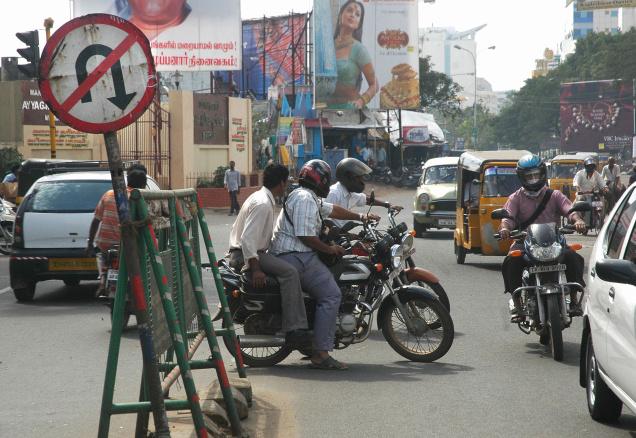Traffic violation is a wide term that includes a series of violations that a driver may commit these days. Since traffic is regulated by certain legal provisions, countless citations and fines have been issued for a series of traffic violations. In order to understand what traffic violations actually are, it is essential to know that they represent any act that violates the municipality or state traffic laws. Although the traffic laws are different from one region to another, most of them condemn pretty much the same violations.
Traffic Violation Types
Most states divide traffic violations into different minor and major types, such as:
- The most major driving violations relate to driving under the influence, commonly known as DUI, reckless driving, and leaving the scene of an accident
- The next types of traffic violations include speeding and other acts that usually do not require court appearance
- The most minor violations are the parking incidents
The less serious traffic violations are prosecuted as misdemeanor. In case that the same violation takes place repeatedly, it can be prosecuted as a felony. Most misdemeanor charges relate to covering a fine without any jail time. The most serious traffic violations, like reckless or drunk driving, usually end up with jail time. Obviously, the most common misdemeanors are the speed limit and seatbelt violations.
A Comprehensive Guide to Traffic Violations and Their Effects
As you already know, the consequences of a specific traffic violation pretty much depend on the offence, its nature, and the record of the driver receiving the violation. Besides fine and jail, a person, who violates the traffic laws, can also have the driving privilege suspended and higher insurance premium. In some situations, the drivers are required to complete a traffic school program.
- Insurance Premiums: Most traffic law violators get higher insurance premiums after breaking the traffic laws. This is because most insurance companies cannot trust a person who has previously violated the law. However, the insurance premiums are set by insurance companies based on different procedures. This means that that you can manage to get different insurance premiums that range from affordable to very high rates.
- Driving Privilege Suspension: Usually, the suspension of driving privilege is based on a particular point system. In case that a driver accumulates a high number of points that correspond to specific violations, he or she will lose the driving privilege. It is important to know that driving privilege suspension also depends on the age of the driver. It is a well-known fact that minor drivers have their licenses suspended even if they gather fewer violations than adult drivers do.
- Traffic School Programs: The people, who violate traffic laws repeatedly, get the chance to attend a traffic school in order to have the violation wiped off the record. Most traffic schools require drivers to attend a 6 to maximum 8 hour class, which mainly focuses on the dangers that traffic law violators usually trigger. In some situations, people can also choose to attend a traffic school program instead of paying a fine.
- Fines: Fines are the most common “punishments” that traffic law violators get. Fines usually depend on the type of violation that a driver commits. The most serious violations come along with really high amounts as fines and jail time. If the driver has other traffic violations on the record, he or she will most probably have to pay a higher fine than a driver who does not have any violations recorded.
Find Out the Reasons Why Drunk Driving Is Considered a Special Case
Drunk driving is one of the few driving violations that bring along strong penalties and fines. In most cases, these exceed the penalties and fines of any other type of violation. Drunk driving is subject to the traffic law when the person drinks enough alcohol to impair his or her driving ability. In order to correctly assess the situation of a driver, the officials usually ask the person to go through a series of tests, including sobriety and blood-alcohol tests. While the first test is quite subjective, the second one is able to precisely measure that amount of alcohol in the driver’s blood. If the test result shows a value that exceeds the legal limit, which usually ranges from 0.08 to 0.10 percent, the driver is considered drunk. In this situation, the legal provisions with regard to felony DUI, child endangerment, and anti-plea bargain are to be applied.
A guest post by author Endre Rex-Kiss, on behalf of Unger & Kowitt. Unger & Kowitt is a collection of traffic ticket and criminal defense attorneys, dealing with any legal consequences from speeding tickets in the Florida area!

